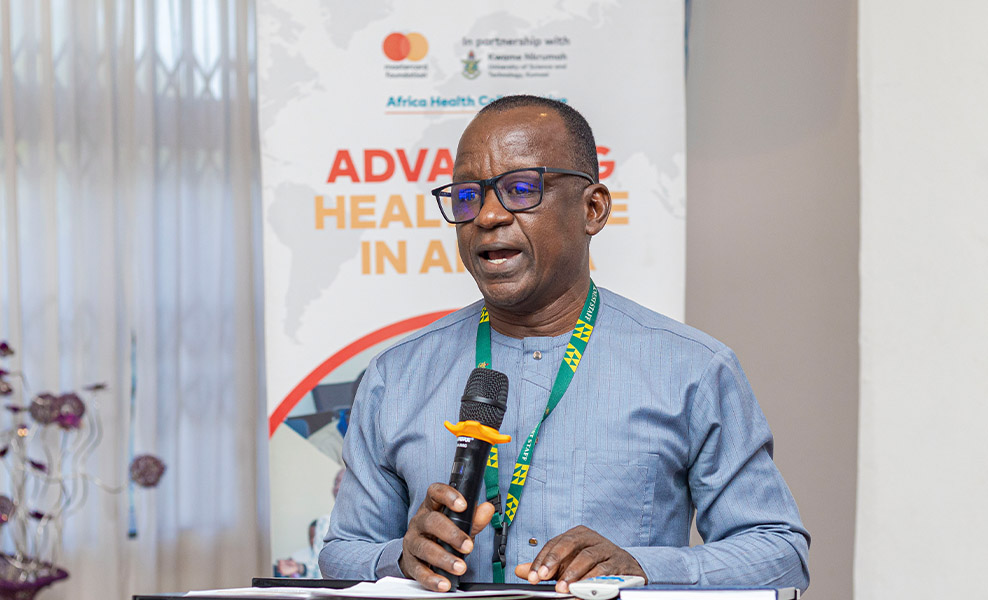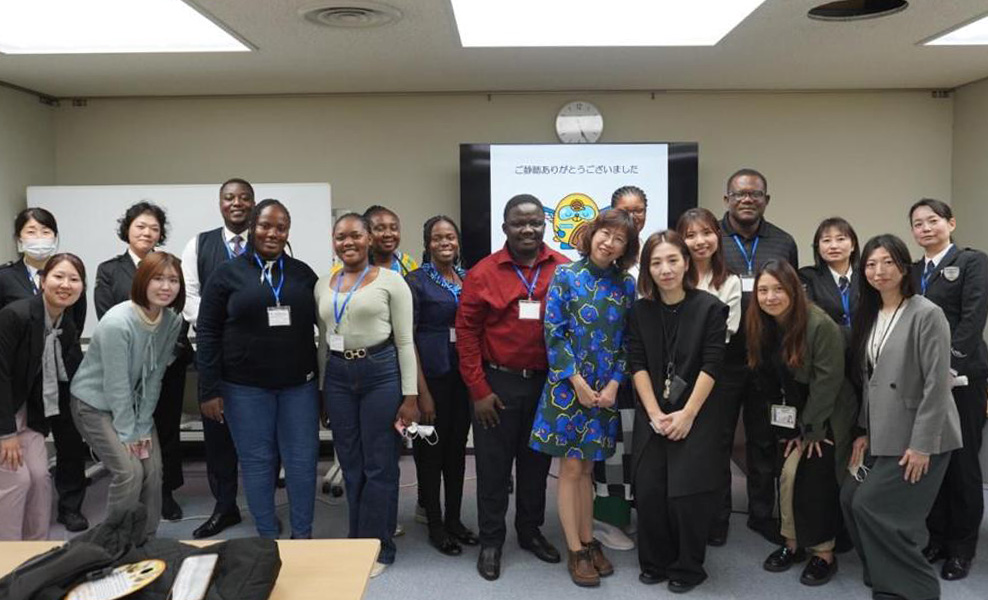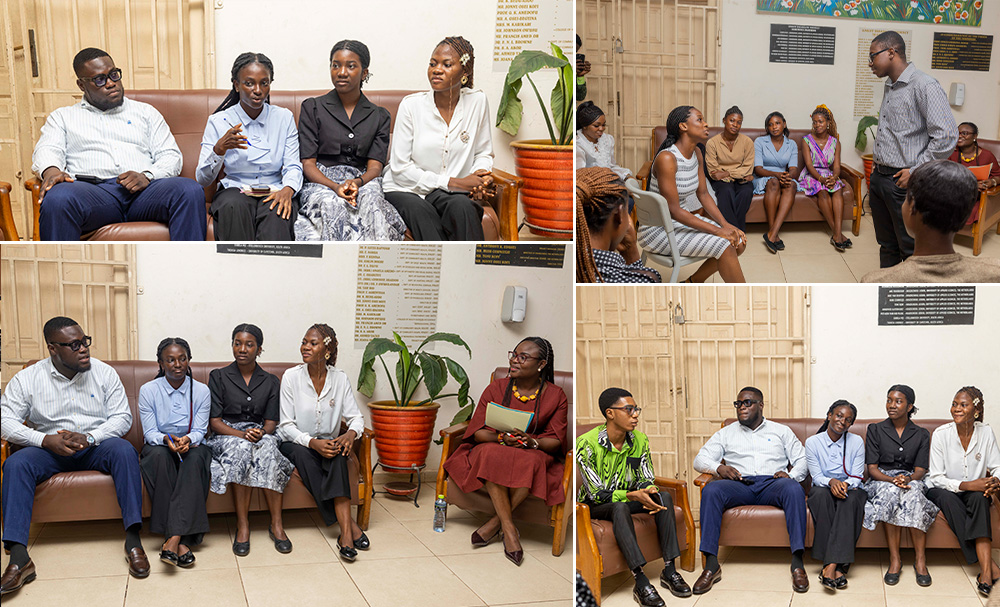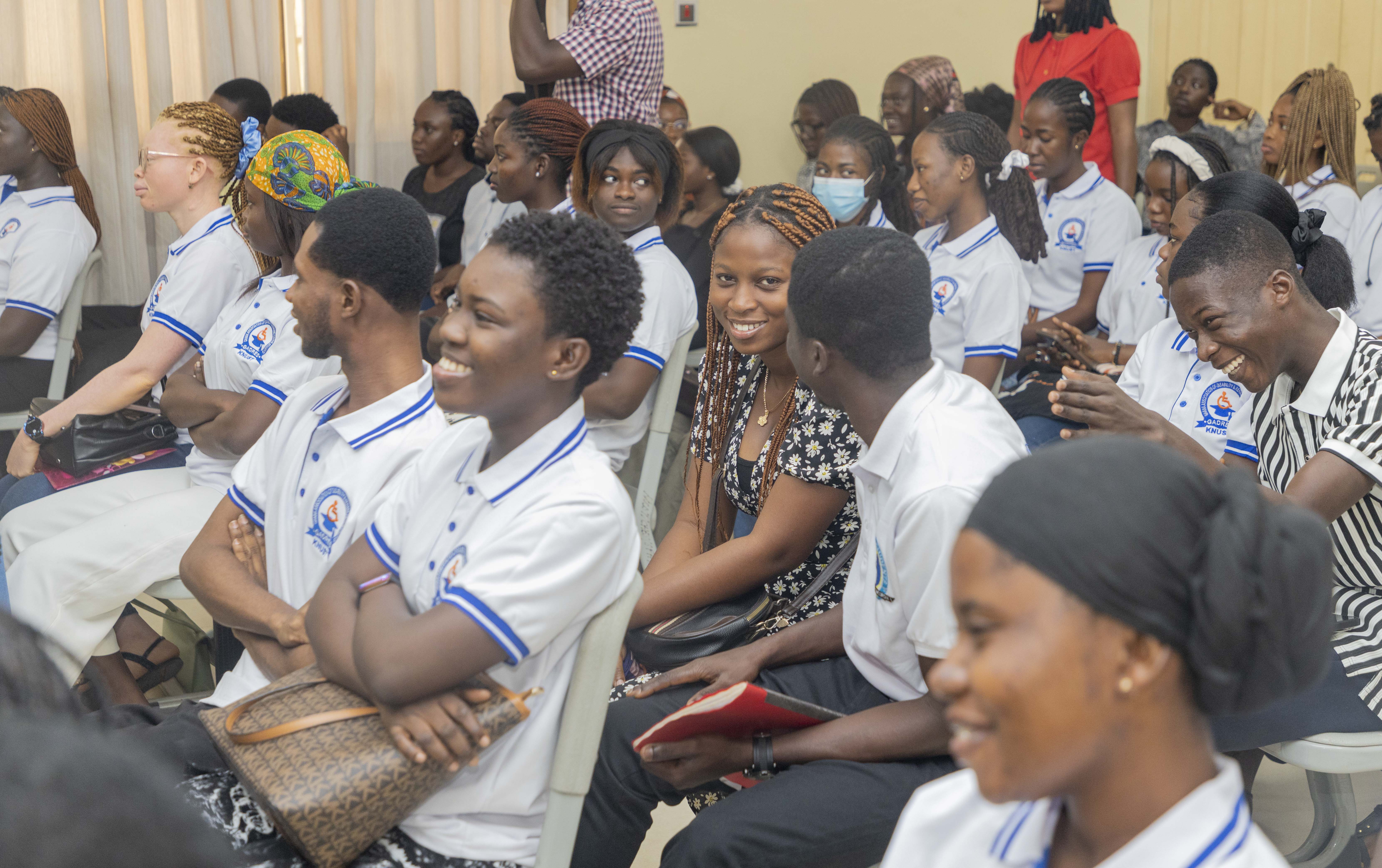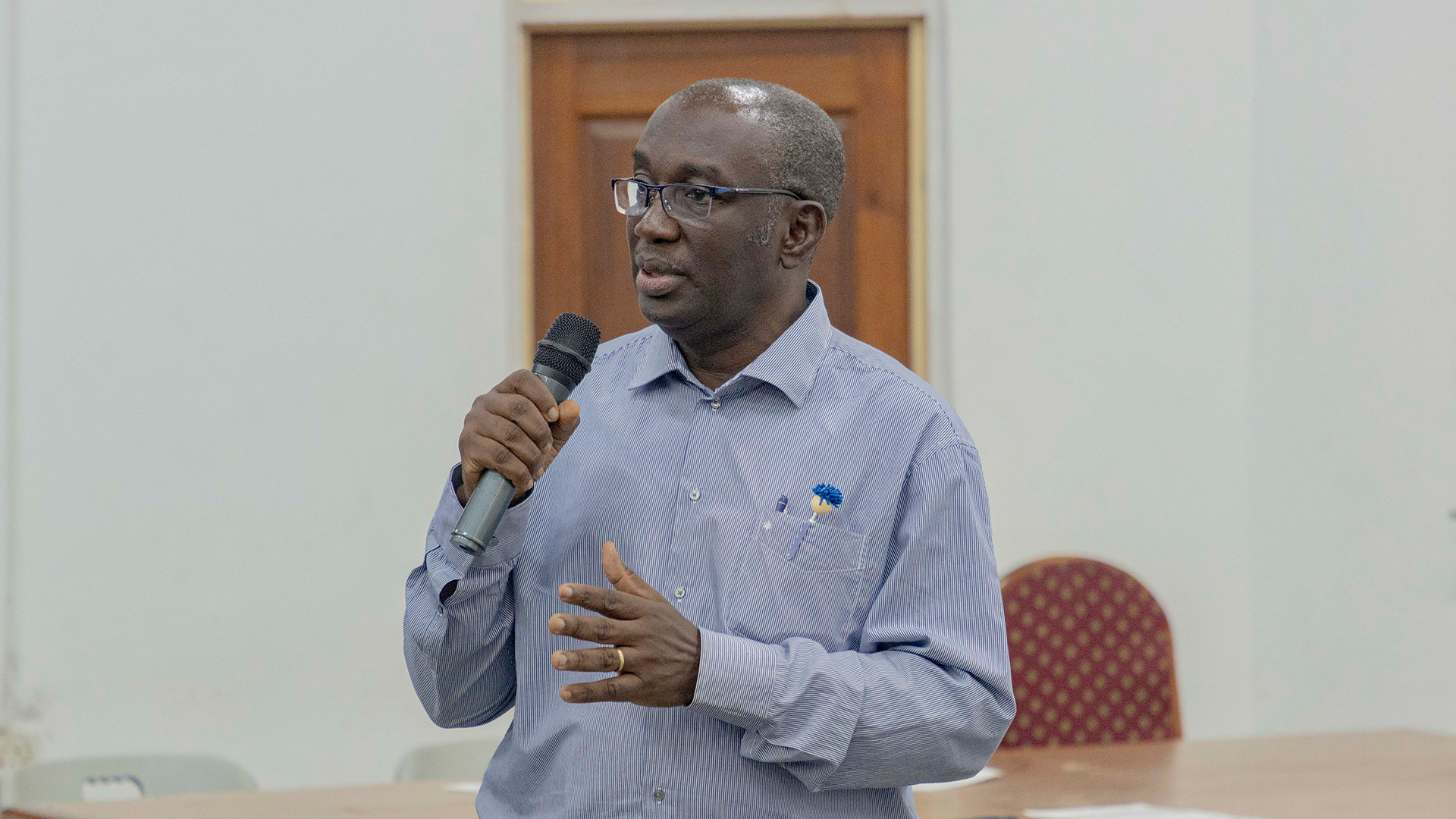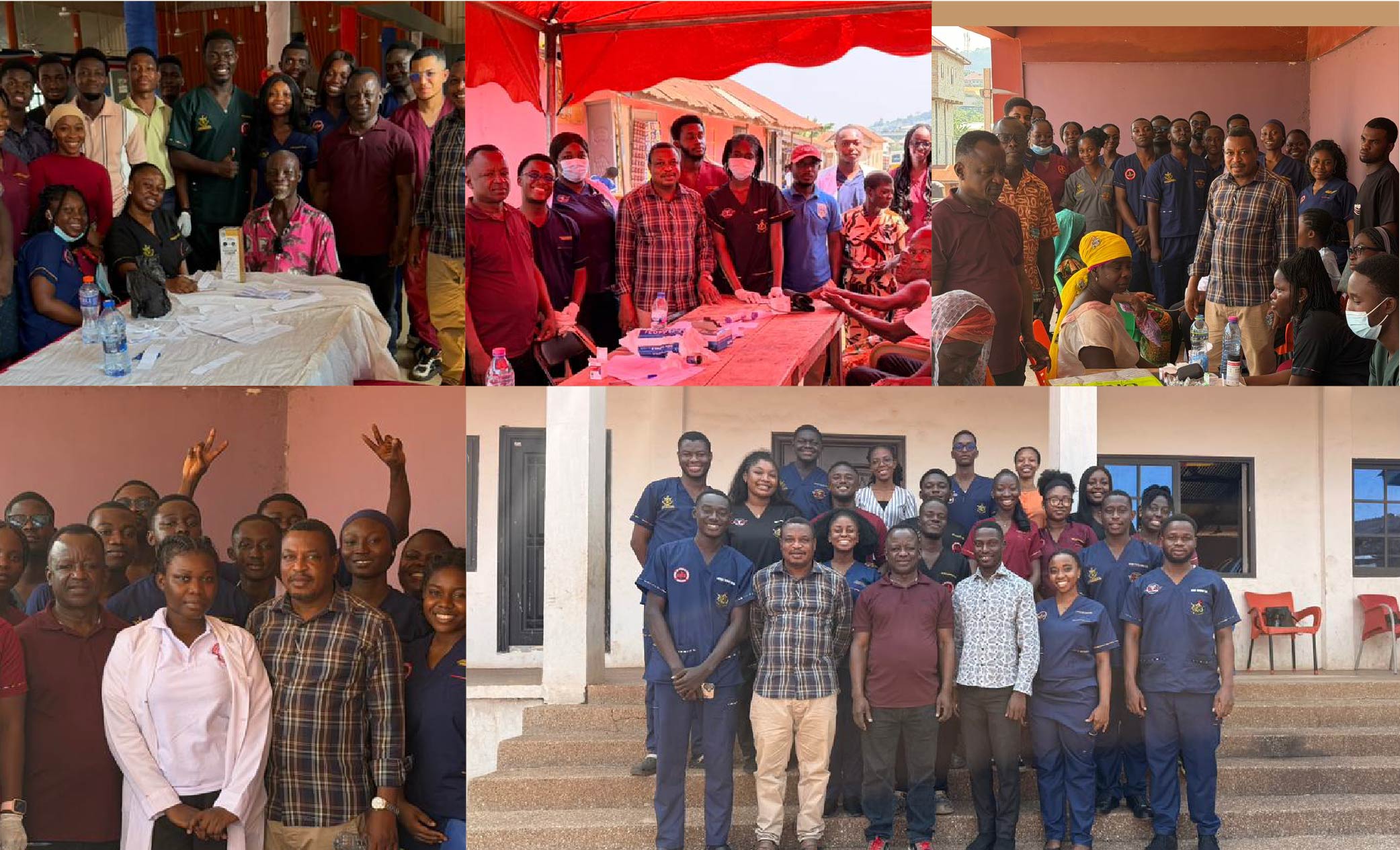The Dean of the School of Public Health at Kwame Nkrumah University of Science and Technology (KNUST), Kumasi, Professor Peter Agyei-Baffour, has called on public health students to take up the mantle of leadership in shaping the future of health research, policy, and practice across Africa.
He made the remarks at the opening ceremony of two specialised short courses organised under the Africa Higher Education Health Collaborative. Supported by the Mastercard Foundation, these courses are part of the Collaborative’s Health Employment Pillar and are designed to equip emerging public health professionals with critical research skills and practical tools to address real-world health challenges.
Prof. Agyei-Baffour encouraged students to engage fully with the training, highlighting its potential to transform not just their individual careers but the broader health landscape of the continent.
“Today marks not just the beginning of two short courses but the continuation of a shared journey, one that unites us in our collective commitment to advancing health in Africa through research, innovation, and capacity building,” he said.
He emphasized that the training goes beyond knowledge transfer, offering students a platform to develop leadership capabilities, foster professional networks, and participate in collaborative learning that extends beyond the classroom.
“We are especially proud that this initiative brings together expert facilitators and promotes partnerships that will outlast the duration of these courses,” he added. “To our public health students: you represent the future of health research and leadership on this continent. We are here to support you as you grow, question, discover, and lead.”
One of the workshops focuses on the JBI Systematic Review Program, a globally recognised methodology developed by the Joanna Briggs Institute. It trains students to conduct rigorous evidence synthesis, enabling them to produce high-quality, contextually relevant research to inform policy and practice.

Dr. Henry Ataburo, the lead facilitator, stressed the importance of grounding research in the realities of local healthcare systems.
“Understanding the context in which we work is key to evidence-based public health,” he noted. “We must generate knowledge that is not only valid but also useful in our specific settings. Let’s work together so that by the end of this training, we are equipped to make meaningful contributions to both research and practice.”
Also addressing the participants was the Provost of the College of Health Sciences, Prof. Christian Agyare, who underscored the scientific and ethical importance of systematic reviews in modern public health practice.
“Systematic reviews are about more than synthesising data, they represent a commitment to truth, transparency, and scientific rigour,” he stated. “In an era of information overload, this approach provides clarity for practitioners and decision-makers alike.”

The courses, led by Dr. Kofi Akohene Mensah, reflect KNUST’s ongoing mission to train a new generation of public health professionals who are not only academically grounded but also practically equipped to develop sustainable and inclusive health solutions for Africa.


